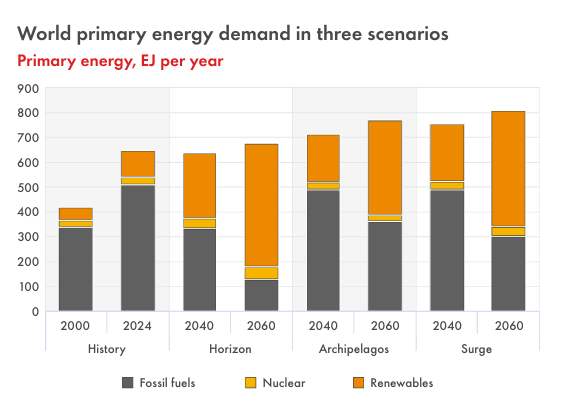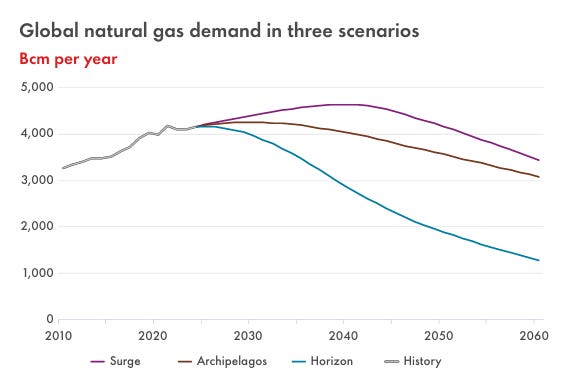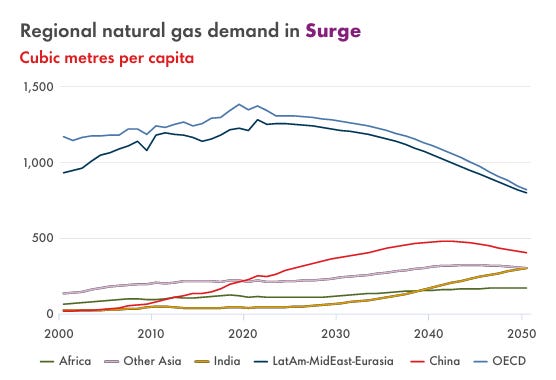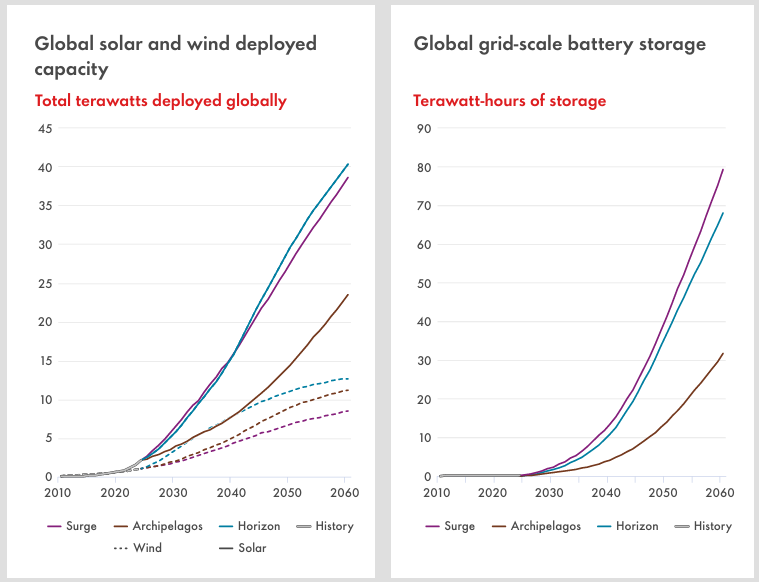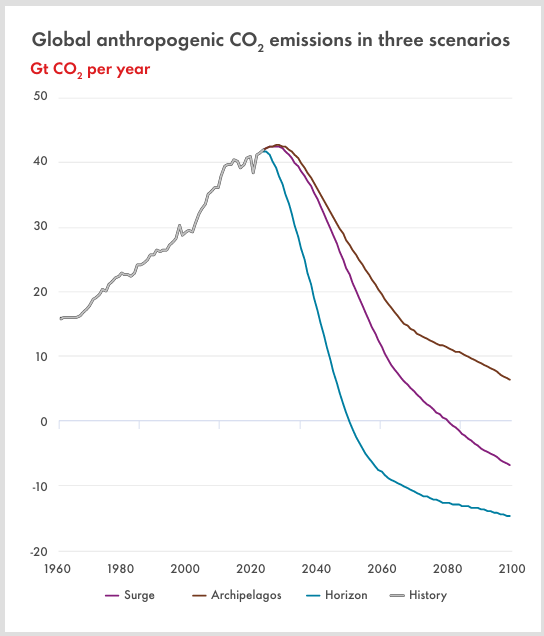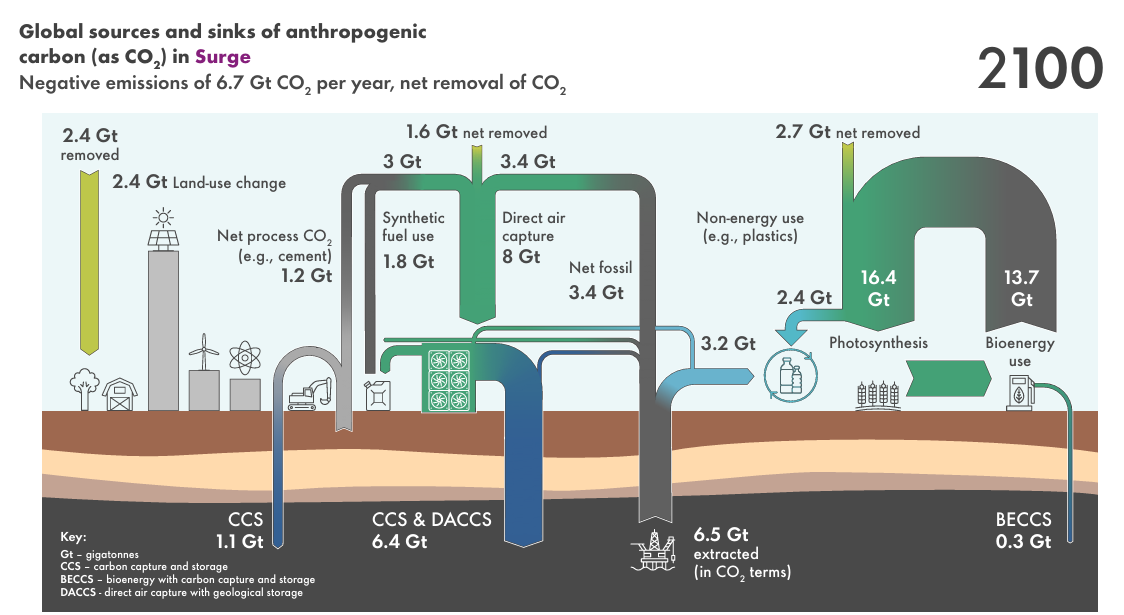Surge of Optimism in Shell's Scenario
The scenario explores the potential of AI to change the energy system
𝗦𝘂𝗿𝗴𝗲 𝗼𝗳 𝗢𝗽𝘁𝗶𝗺𝗶𝘀𝗺 𝗶𝗻 𝗦𝗵𝗲𝗹𝗹'𝘀 𝗦𝗰𝗲𝗻𝗮𝗿𝗶𝗼. Shell put economic and energy upside in their new Surge scenario in its annual 2025 Energy Security Scenarios. What stood out?
Shell’s Surge scenario explores the potential of AI to change the energy system and “a new wave of economic growth spurred by productivity improvements catalyzed by AI”.
There is tone of optimism about the human condition in the Surge scenario that stands out relative to the Horizon (reference case to 1.5C and the Paris Agreement) and the Archipelagos (a case that considers tensions, trade frictions and security), that I think reflects thriving middle ground. For example:
The Surge scenario sees the global economy ~15% larger by 2060 than the alternatives and underwrites economic growth above the 2% beyond 2030.
Net-zero emissions are achieved, but much later in the timeline (2080) as strong economic growth leads to higher energy demand (from sources of all types). Yet, it is still achieved and total warming is modelled to peak at 2.2C and they suggest “a future with warming above 2‒2.5°C appears unlikely.”
Natural gas demand grows through the 2030’s as economies (especially in Asia) demand more of it to meet their energy (and reliability) needs. Alternative scenarios see gas demand flat to declining.
Negative emissions from direct air capture (DAC), bioenergy and land use changes play a big role in getting to net-zero and capping temperature rise. Notably, the growth in inexpensive solar energy and declining technology costs push DAC enable this technology to play a meaningful role towards the end of the timeline, with the Middle East leading the way.
Some of my favorite images from Shell’s report:


